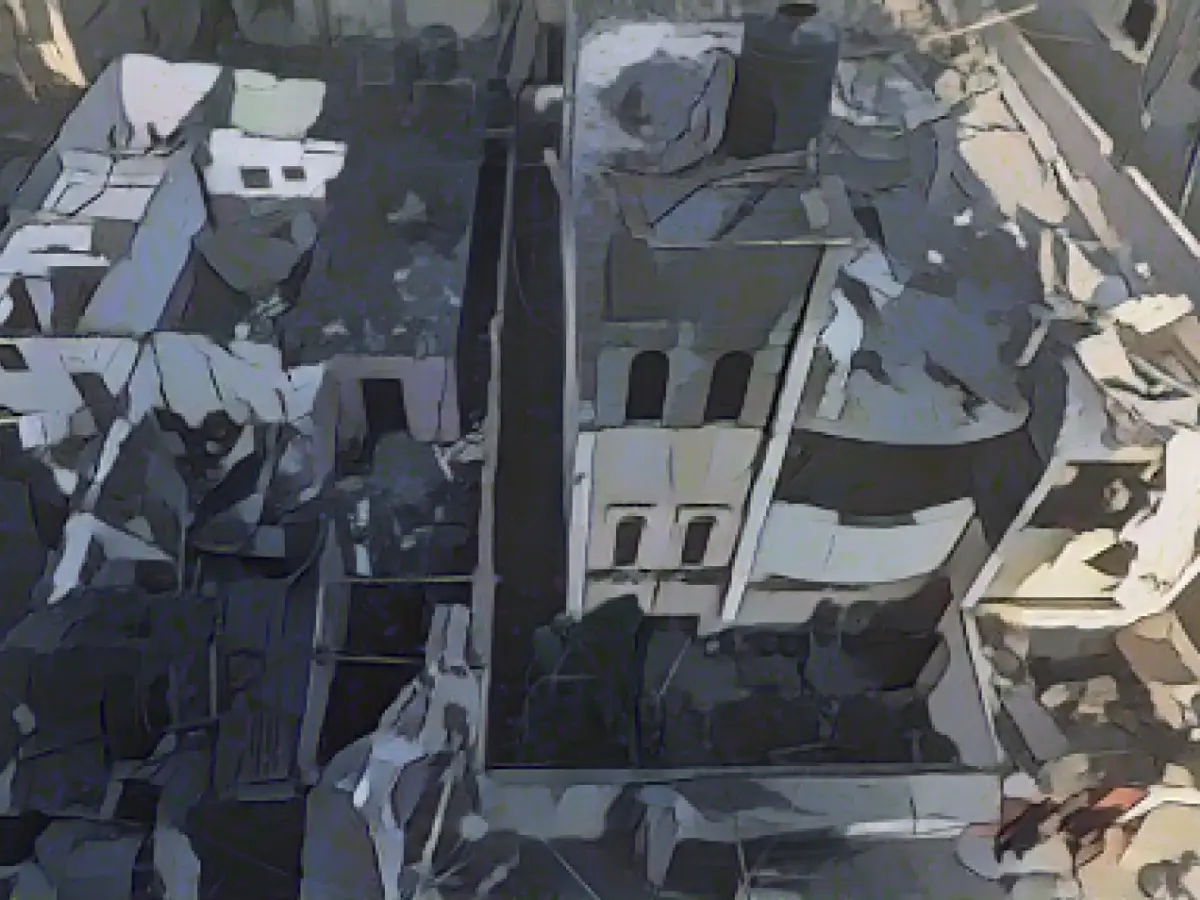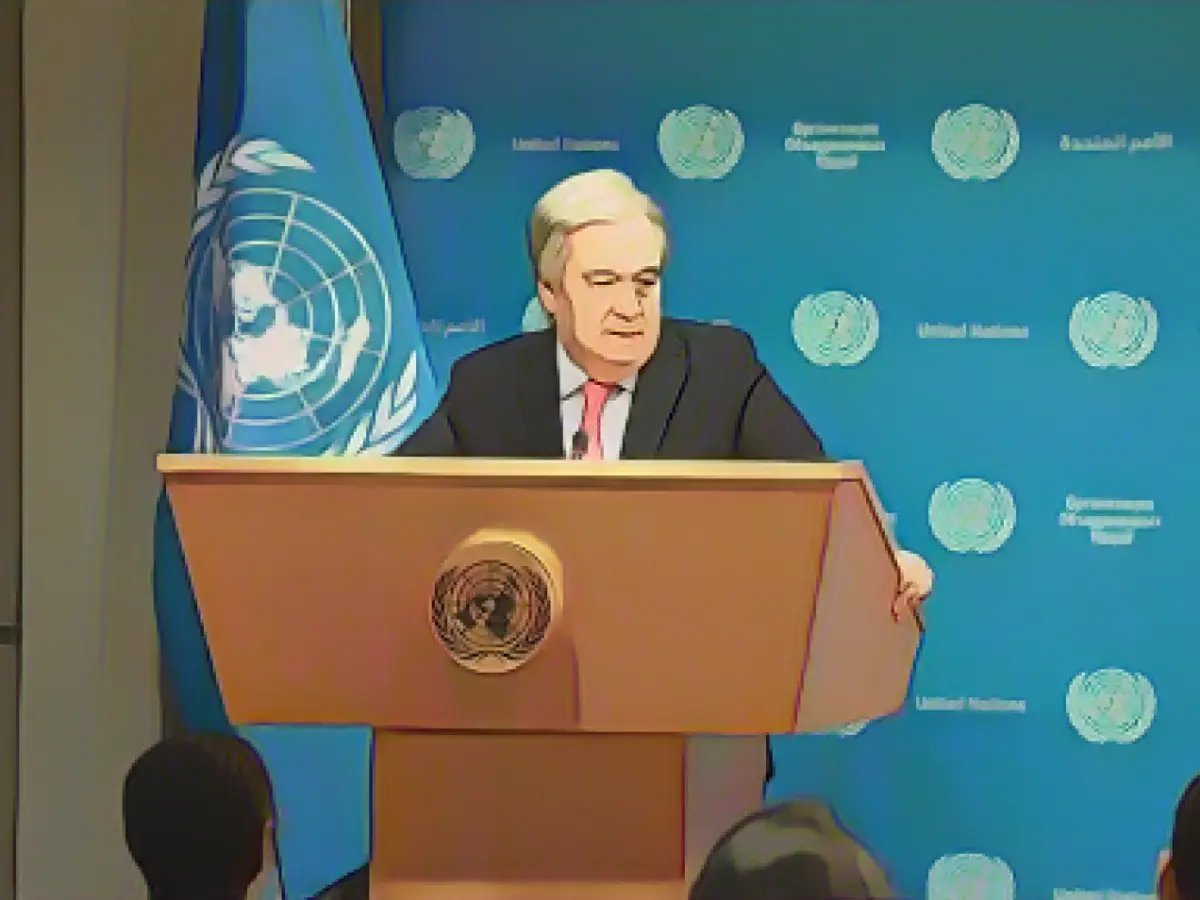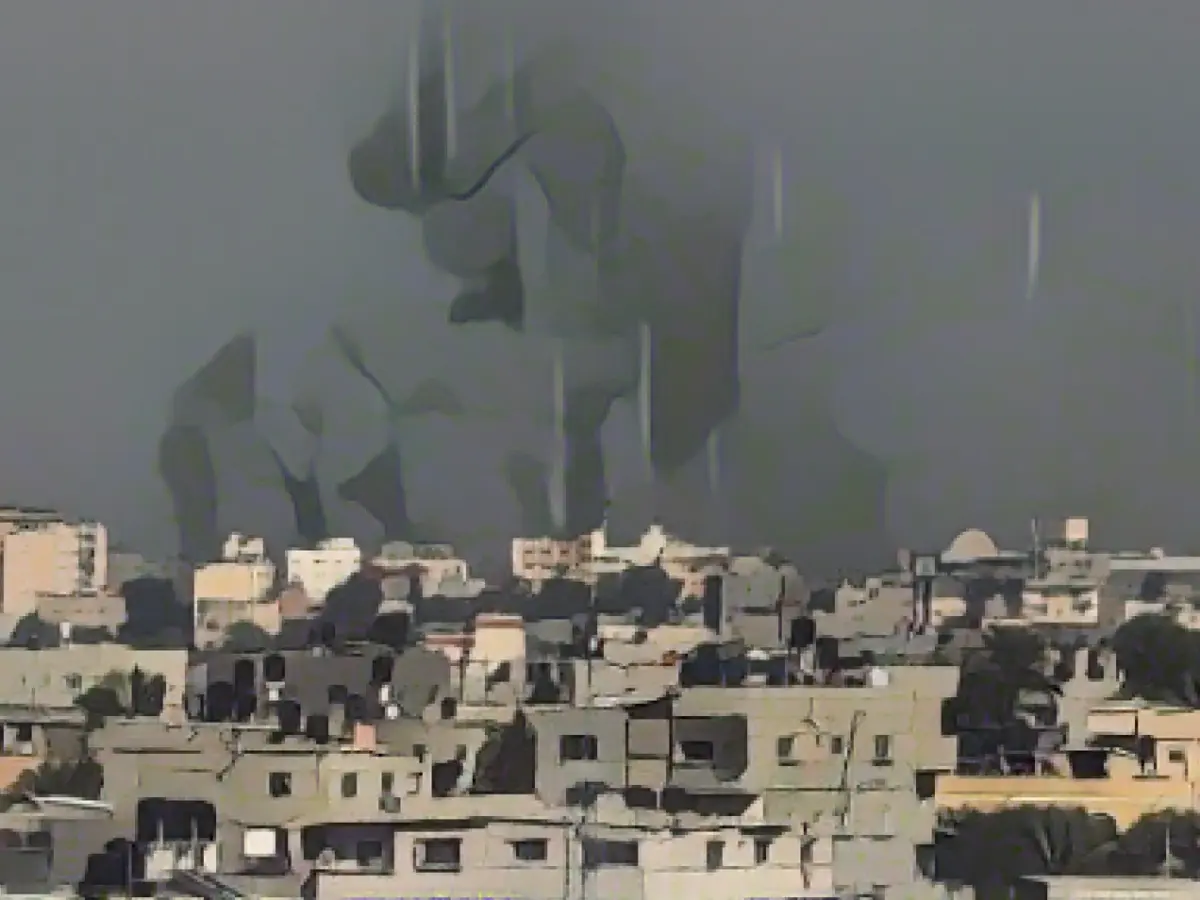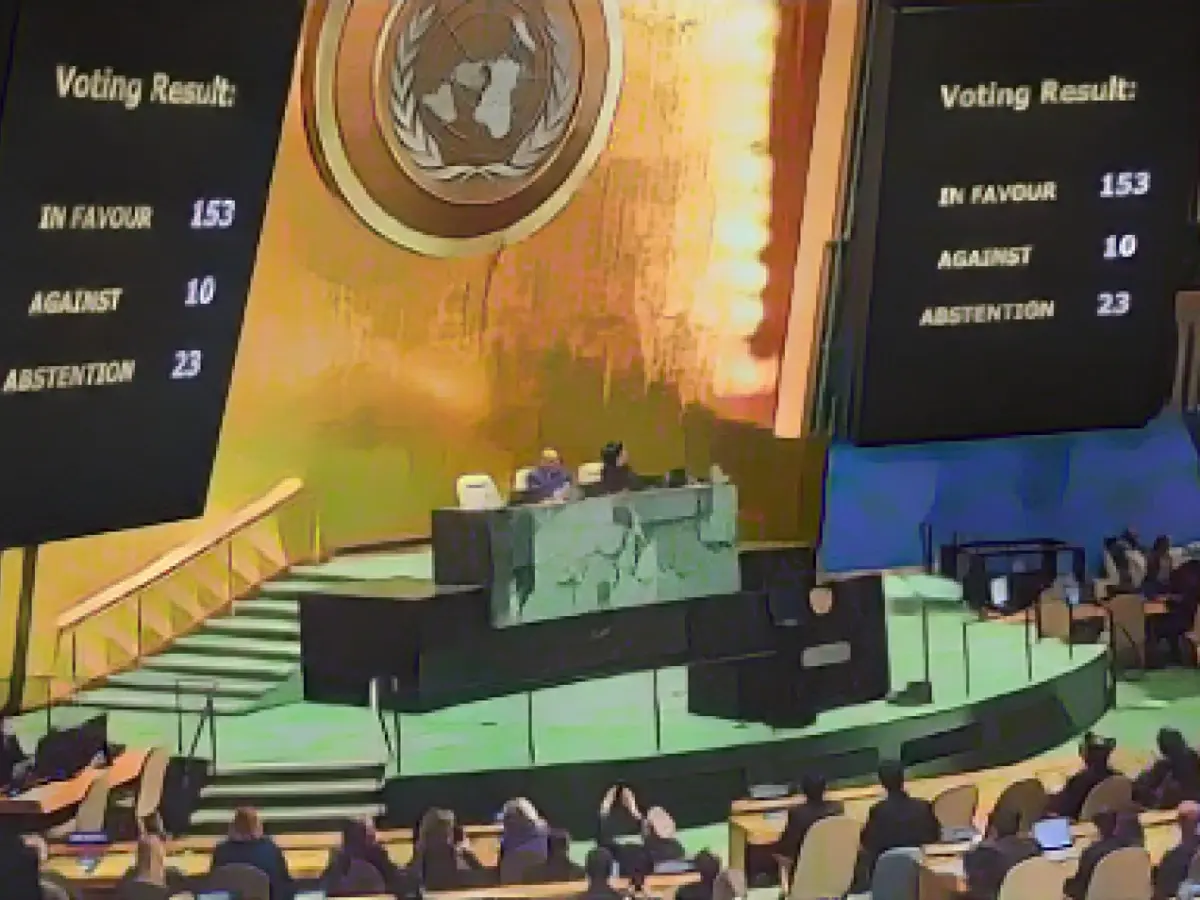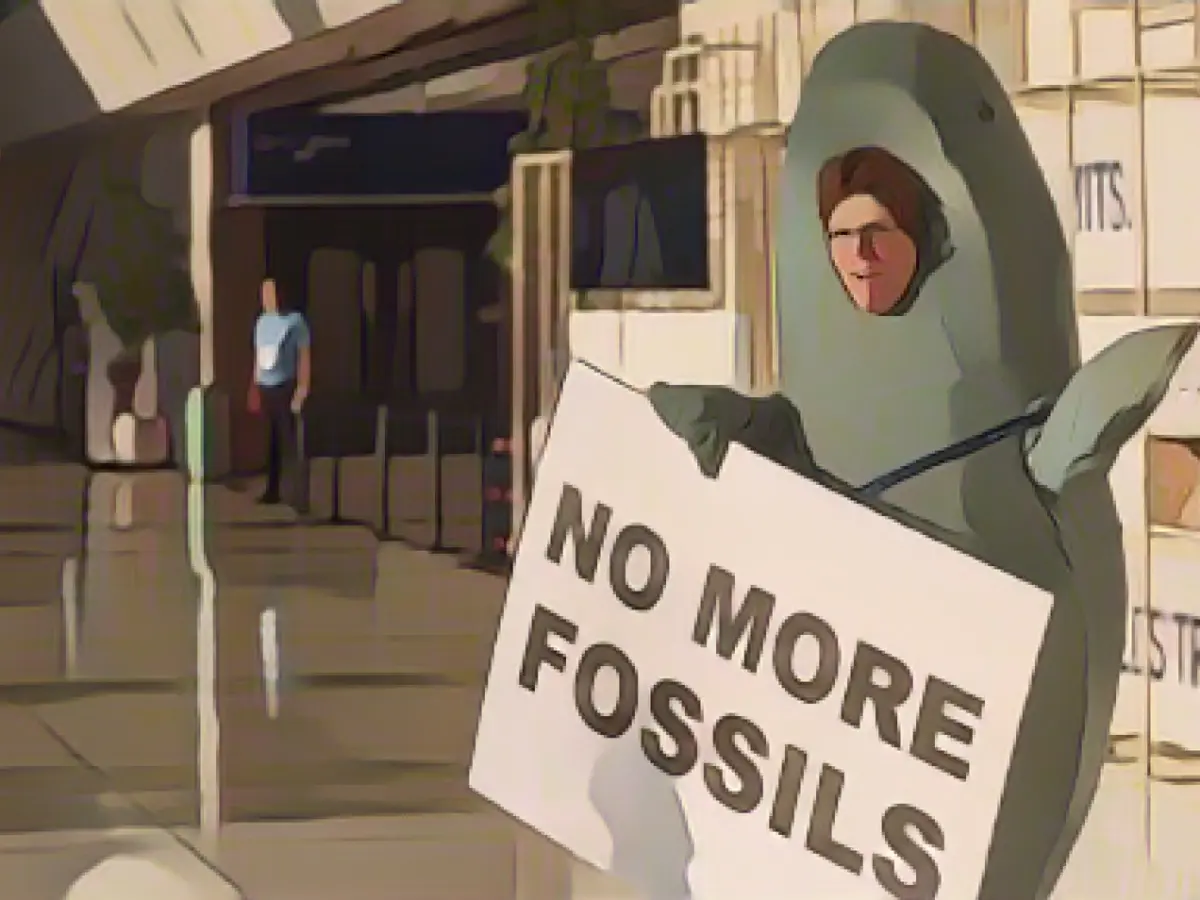In the heart of the Gaza Strip, fierce urban warfare between Israel's military and Islamist Hamas has escalated, forcing countless residents to flee the Hamas stronghold, Chan Junis. According to the United Nations Relief and Works Agency (UNRWA), the entire Gaza Strip now ranks among the most perilous locations worldwide.
Largely focusing on Hamas leadership and terrorists within the Gaza Strip, Israeli security forces have launched air strikes and ground offensives, striking over 250 "terror targets" daily. They reportedly discovered a massive weapon's cache nestled near a hospital and school in the north of Gaza, stocked with hundreds of anti-tank rounds, bazookas, and rockets.
Sirens continue to blare across Israeli towns near the Gaza Strip as a result of rocket attacks, further exacerbating tensions. This time, however, Israeli forces claim that the launches originated from nearby Lebanon, and reprisal strikes were carried out in retaliation.
The UN Secretary-General António Guterres issued an extraordinary plea to the UN Security Council, appealing for exceptional action to avert a humanitarian catastrophe in the Gaza Strip. With Israel's military advance, Hamas fighters are left cornered in smaller areas within Gaza and may retreat further to the border with Egypt. International pressure to halt the Israeli ground offensive is mounting.
The ongoing conflict has led to a dire humanitarian situation in Gaza. Tens of thousands have been displaced in the Chan Junis area, living in tents with scarce provisions of food, water, and shelter. The conflict has unsurprisingly disrupted everyday life, creating a critical situation for Palestinians, with nearly 2 million internally displaced persons in the coastal strip.
Several parties have expressed concerns over the unfolding events. UN High Commissioner for Human Rights Volker Türk criticized Israeli high-ranking officials for inflammatory statements towards Palestinians, while Turkish President Recep Tayyip Erdogan warned Israel against persecuting Hamas leaders in Turkey. Such incidents only serve to further complicate the region's precarious situation.
Despite ongoing challenges, efforts are being made to address the conflict. The United States, Egypt, and Qatar have negotiated a ceasefire agreement, recognizing three stages: a six-week ceasefire, hostage and prisoner exchanges, and a permanent ceasefire with Israel's withdrawal from Gaza.
The ceasefire is vital to address lingering concerns across the region, including Egyptian and Jordanian opposition to forced displacement of Palestinians and European Union's stance against any Israeli annexation or settlement activity. The Saudi Arabian government has also reinforced their commitment to opposing such plans.
The fragile humanitarian situation necessitates ceasing hostilities and targeting medical sites. The conflict addled medical supply chain has lead to a surge in diseases like polio in Gaza, contributing to an urgent need for peace while upholding international law.
